TorrentFreak Email Update |
- PirateBox Delivers Brand New Anonymous Sharing Release
- Pirate Bay Celebrates “Independence Day” on 8-Year Raid Anniversary
- BitTorrent Inc. Demands $5.8 Million From Trademark “Scammer”
| PirateBox Delivers Brand New Anonymous Sharing Release Posted: 31 May 2014 11:06 AM PDT
In 2012 and following a breakthrough update, the cost of creating a PirateBox dropped from a very reasonable $100 to an extremely attractive $50. Anonymous offline file-sharing was now within everyone’s reach. Since then PirateBox has gathered an extremely enthusiastic following, something which has spurred its developers on. Yesterday PirateBox delivered its v1.0 update and a brand new website so to celebrate the occasion TorrentFreak caught up with creator David Darts. TF: PirateBox was warmly welcomed by the community in 2012. How has community feedback shaped the PirateBox project since? DD: The community has had a big impact on the development of PirateBox. When I originally released the project, it was essentially just an offline browser-based file sharing system. My first prototype was basically a proof-of-concept – a light-weight python web server running on a hacked Seagate Dockstar network adapter connected to a pocket wireless router. Almost immediately after publishing the project online, I started receiving feedback from developers and hackers around the world who were interested in using and contributing to the project. My inbox also started filling up with support requests, which is why I set up the PirateBox Discussion Forum. While I believe in the Free Open Source ethos of providing tech support for my peers (I’ve been the beneficiary of this support many times), I simply couldn’t handle the volume of requests. Fortunately, the community stepped up and helped out with support (and testing, and development) through the discussion forum. Many of the key features of the PirateBox, like the chat room and UI, have been co-developed by the community. Matthias Strubel, who is now the project’s lead developer, was one of the community members who reached out and joined the PirateBox team. He has really helped push the project forward.  TF: Has PirateBox been used in any unexpected or innovative ways? DD: As designers know all too well, their creations are often used in ways they didn’t necessarily intend. The PirateBox is no exception. It has been used by musicians and bands to distribute their music at festivals and gigs, by teachers to distribute and collect digital materials from students, and by emergency response workers and volunteers to distribute local first aid information and community updates. Conference organizers have used it to distribute conference materials and to provide local wireless commenting during presentations, and it’s been utilized by CryptoParty workshop volunteers to securely share cryptographic keys.  TF: How many users of PirateBox are there today? DD: Well, we don’t track our users but the project has grown “rhizomatically” across several websites and languages so it’s a little tricky to estimate how many PirateBoxes are out in the wild today. It is possible, and sometimes preferable, to distribute the PirateBox software locally (and anonymously) using a PirateBox and, because the boxes never go online, it’s impossible to really keep track of them. Generally speaking, this is a good thing. TF: Technology is always on the move – which developments have most affected today’s PirateBox compared to the one that launched two years ago? DD: Two big tech trends have helped push PirateBox 1.0 development forward: The proliferation of small screens, which is how we increasingly interact with the network and each other, and the increased availability of tiny, inexpensive computers (including wireless routers, single board systems like the Raspberry Pi and other embedded “Internet of things” devices) which are rapidly filling up our world. 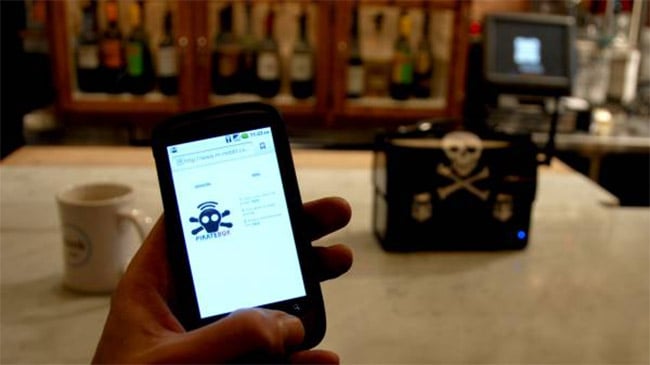 Version 1.0 is thus designed with mobility and low cost hardware in mind. We’ve reworked the UI and based it on Twitter’s Bootstap so that the software plays nicely with small screens. And we’ve built PirateBox 1.0 to run natively on inexpensive hardware. Another “technology” development that helped increase interest in the PirateBox project was the confirmation through the Snowden leaks last year that the US government was operating near universal mass-surveillance programs around the world, often in partnership or, at least, with the complicit support of several large technology and Internet companies. While this has obviously raised very serious questions and concerns around the world, these revelations have at least helped push important conversations about privacy, surveillance, censorship, freedom, etc. to the forefront. These are all issues that the PirateBox project engages with and thus it has helped inspire new users to join the project.  TF: What is so special about the release of PirateBox 1.0, why should existing users upgrade, and what do new users have to look forward to? DD: Along with the increased stability of PirateBox 1.0, the key new feature is Matthias Strubel’s “box-installer” which radically simplifies the process of building or upgrading a PirateBox. It is now possible to build a new PirateBox in just a few easy steps. One of my favorite new features of PirateBox 1.0 is the UPnP media server which starts streaming video and audio files over the network as soon as they’ve been uploaded to the box. I’ve actually been using this feature for awhile. It works perfectly as a backend to XBMC for instance and is also a great way of streaming movies to your mobile devices when traveling. PirateBox 1.0 also offers a image/message bullet board called Kareha by default which is similar to the software used on 4chan. This means that PirateBox 1.0 offers 4chan in a box functionality, which I think is pretty cool. And of course, it also comes with a chat room and browser-based file sharing system. TF: What role do you see PirateBox fulfilling in the future and what plans do you have for the next 12 months? DD: The holy grail of offline networking is wireless mesh and we’ve been experimenting with it in the PirateBox. Matthias has been playing with Forban over the last year and we’ve successfully deployed and connected small sets of PirateBoxes using the B.A.T.M.A.N. protocol. This is really just an experimental feature at this point but it is something we’re planning to keep developing. I’ve also been experimenting with connecting the PirateBox to the Internet, which, in some ways, is counter to the philosophy of the project as an offline file sharing and communications system. However, I also think there’s real value in providing people with ways to connect online that help preserve their privacy. This is especially important for those who are less tech-savy and thus may not know how to protect themselves from tracking, etc. While the PirateBox will continue to be an offline file sharing and communications system, we may consider providing an optional feature in the future that allows it to be used online. Or this may become a new fork of the project….. Interested in making your own PirateBox? Try here. Source: TorrentFreak, for the latest info on copyright, file-sharing and anonymous VPN services. |
| Pirate Bay Celebrates “Independence Day” on 8-Year Raid Anniversary Posted: 31 May 2014 03:23 AM PDT
First the tracker was removed, then the torrents followed, and later the infamous torrent site canceled nearly all central servers after moving to the cloud. In addition, the site switched domain names on multiple occasions. All these changes were carried out to make the site more resilient and less likely to be shut down by the authorities. This determination to escape the long arm of justice is deeply rooted in the site’s history, dating back to the raid eight years ago. Most of the site’s current users are probably unaware that without a few essential keystrokes in the site’s early years, The Pirate Bay may have not been here today. May 31, 2006, less than three years after The Pirate Bay was founded, 65 Swedish police officers entered a datacenter in Stockholm. The policemen had instructions to shut down the largest threat to the entertainment industry at the time – The Pirate Bay’s servers. While the police were about to raid the datacenter, Pirate Bay founders Gottfrid and Fredrik got wind that something was up. In the months before the raid they were already being watched by private investigators day and night, but this time something was about to happen to their trackers. At around 10am in the morning Gottfrid told Fredrik that there were police officers at their office, and asked him to get down to the co-location facility and get rid of the 'incriminating evidence', although none of it, whatever it was, was related to The Pirate Bay. As Fredrik was leaving, he suddenly realized that the problems might be linked to their tracker. He therefore decided to make a full backup of the site, just in case. When he later arrived at the co-location facility the concerns turned out to be justified. There were dozens of policemen floating around taking away dozens of servers, most of which belonged to clients unrelated to The Pirate Bay. Footage from The Pirate Bay raid In the days that followed it became clear that Fredrik’s decision to start a backup of the site was probably the most pivotal moment in the site’s history. Because of this backup Fredrik and the rest of the Pirate Bay team managed to resurrect the site within three days. The site’s operators were not impressed and renamed the site “The Police Bay” complete with a new logo shooting cannon balls at Hollywood. A few days later this logo was replaced by a Phoenix, a reference to the site rising from its digital ashes. Logos after the raid
Instead of shutting it down the raid brought the site into the mainstream press, not least due to its amazing three-day resurrection. All this publicity resulted in a huge traffic spike for TPB, exactly the opposite effect Hollywood had hoped for. Despite a criminal investigation leading to convictions for the site’s founders, The Pirate Bay kept growing and growing in the years that followed. The site’s assets, meanwhile, had been transferred to the Seychelles-based company Reservella. Under new ownership several major technical changes occurred. In the fall of 2009 the infamous BitTorrent tracker was taken offline, turning The Pirate Bay into a torrent indexing site. Early 2012 The Pirate Bay went even further when it decided to cease offering torrent files for well-seeded content. The site’s operators moved to magnet links instead, allowing them to save resources while making it easier for third-party sites to run proxies. These proxies turned out to be much-needed, as The Pirate Bay is now the most broadly censored website on the Internet. In recent years ISPs in Denmark, Italy, UK, the Netherlands and elsewhere have been ordered by courts to block subscriber access to the BitTorrent site. On its tenth anniversary last summer the Pirate Bay team released another option for its users to circumvent the increased censorship, the PirateBrowser. With this browser users in blocked countries can bypass ISP blockades without having to use a proxy. Over the past year The Pirate Bay also encountered some domain name troubles. Fearing a domain seizure through the Swedish court the site moved from its .SE domain to Greenland’s .GL ccTLD. However, TPB wasn’t welcome there, a rejection that signaled the start of a domain hopping exercise via Iceland’s .IS to Sint Maarten’s .SX, to Ascension Island's .AC, Peru's .PE, and back via Guyana's .GY to the good old .SE domain, where it resides again today. Looking ahead The Pirate Bay plans to become even more indestructible, partially moving away from the web. The TPB team is working on a special BitTorrent-powered application, which lets users store and distribute The Pirate Bay and other websites on their own computers. Instead of bypassing external censors, this new tool will create its own P2P network through which sites can be accessed without restrictions. This “p2p browser” should be able to keep The Pirate Bay operational, even if the site itself is pulled offline. There is currently no estimated release date set for this second project, but it will take a few more months of development at minimum. And so The Pirate Bay is expected to live on and on. A few months ago the site turned ten years old and today it’s celebrating the raid anniversary, which it declared “Pirate Independence Day” back in 2008. "Let today be the pirates independence day! Today we celebrate the victories we've had and the victories that will come. Today we celebrate that we're united in our efforts. Keep on seeding!," the TPB team said at the time. The site’s millions of regular visitors indeed kept on seeding. But remember, if there hadn’t been a recent backup back in 2006, things may have turned out quite differently. Source: TorrentFreak, for the latest info on copyright, file-sharing and anonymous VPN services. |
| BitTorrent Inc. Demands $5.8 Million From Trademark “Scammer” Posted: 30 May 2014 10:26 AM PDT
Needless to say there is plenty of interest in the BitTorrent brand, and in some cases this demand is being exploited by third-party companies. One of the outfits that has operated in this space is the German-based Bittorrent Marketing GMBH. The company owns the German and European trademark for Bittorrent and has several related domain names such as Bit-Torent.com, Bit-Torrent.com and Bitorrent.net. These domains have been mainly used for advertising, pointing people to paid products. This has been a thorn in the side for BitTorrent Inc. who launched a lawsuit against its German nemesis two years ago. Since the German company and its owner Harald Hochmann failed to respond in court, BitTorrent is moving for a default judgment. In a filing submitted this week they demand $5.8 million in damages. “BitTorrent filed this action to put an end to Defendant's use of BitTorrent's trademarks to promote what Defendant touts as an ‘advertising affiliate program’ used to ‘post ads and earn commissions..’,” the company explains. According to the complaint the sites don’t link people to the free software, but to sites where people have to pay for a mere redirection to third-party services. “For example, after paying over $50 to sign up for ultimate-downloadscenter.com, U.S. users are redirected to third-party websites of other digital media providers, like Netflix.com and Hulu.com, and invited to sign up for membership with those services.” These “scams” are a problem for BitTorrent Inc. as they reflect negatively on the company’s brand. However, there is another issue with the domains. Since the German company owns a lot of domains based on misspellings, they occasionally get emails that are intended for the U.S. company. “Hochmann admitted that his company registered many misspellings of BITTORRENT as or as part of domain names, and that, as a result of registering these domain names, he was able to intercept internal emails of BitTorrent when employees and executives of BitTorrent misspelled "bittorrent" in typing the domain name,” the company explains in its motion. Among other emails, the owner of Bittorrent Marketing GMBH obtained internal financial projections from early 2008. Based on this intercepted communication Hochmann allegedly suggested that BitTorrent Inc. should buy the German company for millions of dollars. Through the U.S. federal court BitTorrent Inc. now hopes to obtain an injunction against its German namesake. In their motion for summary judgment they demand a total of $5.8 million in damages and in addition BitTorrent Inc. wants ownership of all the BitTorrent related domain names. “BitTorrent requests an award of statutory damages in the amount of $100,000 per domain name for each of the 58 Infringing Domain Names identified in the accompanying memorandum of points and authorities, for a total statutory damages award of $5,800,000.” Interestingly, while Hochmann and his company failed to respond to the complaint in court, he did release a long statement and supporting documents which are available via the Bittorrent.eu domain. In the statement Hochmann details his version of the dispute, which started more than a decade ago. Among other things, he disputes that he offered BitTorrent Inc. the opportunity to buy his company for millions, and he points to domain disputes his company won in the past against BitTorrent Inc. Talking to TorrentFreak, Hochmann said that in a week or two he will issue a more detailed response explaining why not he, but BitTorrent Inc. are the “scammers.” For the U.S. case this may be too late, due to the lack of response in the past it’s likely that the default judgment will be entered. It’s now up to the judge to decide what the exact punishment should be. Source: TorrentFreak, for the latest info on copyright, file-sharing and anonymous VPN services. |
| You are subscribed to email updates from TorrentFreak To stop receiving these emails, you may unsubscribe now. | Email delivery powered by Google |
| Google Inc., 20 West Kinzie, Chicago IL USA 60610 | |
 Inspired by the local communications power of traditional pirate radio, in 2011 NYU art professor David Darts created the PirateBox. Part WiFi hotspot, part file server, PirateBox provides quick, easy and above all anonymous access to the files onboard.
Inspired by the local communications power of traditional pirate radio, in 2011 NYU art professor David Darts created the PirateBox. Part WiFi hotspot, part file server, PirateBox provides quick, easy and above all anonymous access to the files onboard. The Pirate Bay has altered its operations quite a bit over the years, moving from a full-fledged BitTorrent tracker to a trimmed-down and highly portable torrent index.
The Pirate Bay has altered its operations quite a bit over the years, moving from a full-fledged BitTorrent tracker to a trimmed-down and highly portable torrent index.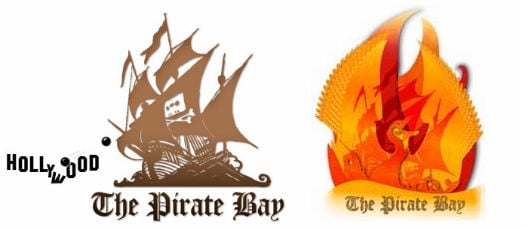

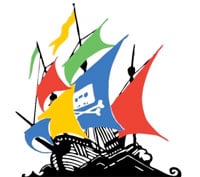

 In the continuing piracy debate one thing has been established beyond reasonable doubt. If an entertainment producer wants to make any dent in piracy, at the very least they’re going to have to make their products readily available at a fair price.
In the continuing piracy debate one thing has been established beyond reasonable doubt. If an entertainment producer wants to make any dent in piracy, at the very least they’re going to have to make their products readily available at a fair price.
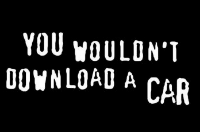 February last year,
February last year, 
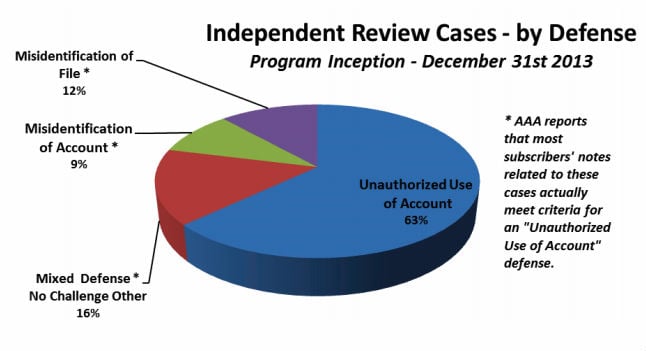
 In early April, Twentieth Century Fox, Disney, Paramount Pictures, Universal, Columbia Pictures and Warner Bros. teamed up to
In early April, Twentieth Century Fox, Disney, Paramount Pictures, Universal, Columbia Pictures and Warner Bros. teamed up to 